- Home
- J. R. Rain
The Spear (Major Quatermain Book 1)
The Spear (Major Quatermain Book 1) Read online
THE SPEAR
by
J.R. RAIN
and RANDY KEYS
The Major Quatermain Series #1
Acclaim for the Stories of J.R. Rain:
“Be prepared to lose sleep!”
—James Rollins, international bestselling author of The Doomsday Key
“I love this!”
—Piers Anthony, bestselling author of Xanth
“Dark Horse is the best book I’ve read in a long time!”
—Gemma Halliday, award-winning author of Spying in High Heels
“Moon Dance is a must read. If you like Janet Evanovich’s Stephanie Plum, bounty hunter, be prepared to love J.R. Rain’s Samantha Moon, vampire private investigator.”
—Eve Paludan, bestselling co-author of Witchy Business
“Impossible to put down. J.R. Rain’s Moon Dance is a fabulous urban fantasy replete with multifarious and unusual characters, a perfectly synchronized plot, vibrant dialogue and sterling witticism all wrapped in a voice that is as beautiful as it is rich and vividly intense as it is relaxed.”
—April Vine, author of Unbound
The Spear
Published by Rain Press
Copyright © 2017 by J.R. Rain
All rights reserved.
Ebook Edition, License Notes
This ebook is licensed for your personal enjoyment only. This ebook may not be re-sold or given away to other people. All rights reserved.
(Previously published in a significantly different version.)
Table of Contents
The Spear
Reading Sample
Other Books by J.R. Rain
About the Authors
The Spear
Chapter One
Much had changed in the world since the end of World War II.
For the past decade, Europe and England had enjoyed relative peace.
The Nazi air raids and sirens echoing deep into the night were mere memories of the past. All good for the land of Britain. Good for everyone, I supposed... But despite my esteemed professorship at the Royal Military Academy, I had become quite bored. Frankly speaking, the boredom had set in not long after I’d accepted my teaching position at the Academy six years before.
But a man must be diligent in making a living.
“Do you know why you’re here, Mr. Villiers?”
The boy sitting across from my desk fidgeted nervously in response to my question. His gaze turned longingly to the window that afforded me a grand view of the parade grounds below my small office. I rose from my chair behind my desk and stepped to the window, and soon, I was absently drumming my fingers against my thigh as the band played the Grenadiers March. I could feel the boy watching me as I counted the cadets’ paces while they practiced their drill for the Sovereign’s Parade, which would take place at the end of next week. The two companies of the final year were to leave Sandhurst and take up their commissions across various regiments of the British Army. The cadets wheeled and marched the short side of the parade square.
I returned my attention to the boy who was no longer gazing toward the window… he appeared as bored as I felt.
“No,” the boy answered, finally. “Sir,” he hastily added, as if suddenly reminded he was in the Army and addressing a major.
“You’re failing your history classes, Mr. Villiers.” I might have glowered at him to make a point. “You have failed to complete your assignments for the third time running. As we have spoken before, should you fail this class, you will be expelled from this academy and will not receive the Queen’s Commission. I doubt your father would be pleased.”
“Yes, sir.” The boy sounded timid, raising his sad gray eyes toward me before looking away again.
“I want your essay on the Battle of Plataea by Friday noon. If I do not have it, you will have failed this class. Is that understood, Mr. Villiers?”
Nelson Villiers looked up at me, the shock clearly written upon his face. A good shock. Apparently, he had expected his case to be hopeless, without the chance to make it up. Hope had brought new life to the boy’s expression.
“Y-yes… sir,” he stammered.
“Dismissed, Mr. Villiers.”
The boy sprang to a salute and turned on his heel. He opened the oak door and practically spilled into the hallway as I watched him leave. I chuckled and opened the window a bit. The tones of the Road to the Isles poured into the room.
Suddenly, I was carried back to the war… back to Sword Beach. I had been transferred to the No. 4 Commando in the 1st Special Service Brigade a few months before Operation Overlord. It was difficult to recall everything that had happened during the landing and the long journey to the beach. But I could always recall something new when reviewing the details. Sometimes, I reflected on unimportant things, such as the battle-scarred Winchester that Lord Lovat, the Brigade’s commander, had carried. I couldn’t help but smile as I remembered the command that Lovat had given his piper, telling him to, “Play the brigade on!” I hadn’t even realized that Bill Millin was unarmed, kilted and had brought his pipes along until that moment. Millin refused the request, citing orders from the War Office. I often smile at the response Brigadier Shimi Fraser had thrown at Bill:
“Aye, but that’s the English War Office, Wee Willie. You and I are Scotsmen, so those orders don’t apply to the likes of us!”
He had said it in a thick Scottish brogue and loud enough for all the men near our landing craft to hear. Most of them were Scottish and laughed.
I remembered the beach being spit up as German bullets pockmarked the sand around Bill Millin’s feet as he marched up and down Sword Beach playing his pipes. As “Highland Laddie” ended, the bullets stopped screaming at the lone piper. As he began playing “Road to the Isles,” I noticed the troops racing to the German positions, desperate to take them and to stop the shooting of more of our comrades—and no doubt, determined to avenge the ones who had already fallen in the hail of murderous metal. I had screamed them onward, dragging men from the water and onto the reddening sand as more of our guys jumped from the landing crafts. Fear was everywhere, but I urged them on until suddenly, the machine gun fire stopped. All the while, Bill Millin’s pipes kept playing.
Amazed by this spectacle at the time, I remained surprised to this day at the answer I received to my questions about it. I was afforded the opportunity to ask our German prisoners why they had not shot the little kilted man. The German gunners simply shrugged. One tapped his forehead with a middle finger. “Verrücktte Pfeiffer.” Insane piper. The Germans, apparently, had begun shooting at him, until they decided the Scotsman was plainly mad.
After the war, I didn’t know what to do with myself. With the army severely downscaled, I was forced back into civilian life, something I hadn’t known for seven years.
On the one hand, I had thought to resume the career cut short at the outbreak of the war; on the other, I wanted to go to South Africa, to travel the lands where my great-grandfather had lived for so long, hunting and trading. I had always felt torn between that and between my love for archaeology since childhood. For a while, I had seriously entertained the idea of a commission in the King’s African Rifles. But at the outbreak of the Malay Emergence, when it became clear that a commission with them would mean fighting the guerrilla war in the jungles of the Malaysian archipelago, I reluctantly withdrew my request to join. As a result, my closest encounter with Africa was a brief holiday in war-torn Egypt.
So, I quietly finished my studies and began looking for work. But a world ravaged by war had little need of archeologists and historians. That is, until one day six years before, when I met an officer from No. 3
Commando whom I recognized from the Dieppe Raid. The man had risen to Brigadier General and lived a leisurely life teaching history at Sandhurst. One history lecturer wasn’t enough for the academy’s cadets, he had said, and upon learning my background, he invited me to apply for the position he had held at the time…
I was shaken from my reverie by a knock on the door.
“Enter.”
Two men stepped into my office. The first was clad in civilian dress, handsome, and appeared to be in ruddy health. The other appeared to be less fortunate, removing his forage cap the very moment he came through the door. Dressed in riding boots, his sleeve bore the insignia and red braid of the Life Guards.
“Major Quatermain, I am Lieutenant Colonel Godfrey of Her Majesty’s Life Guards. And my companion is Major Painter of MI2.”
I raised my hand in salute, slightly embarrassed by the ink stains on my fingers. The lieutenant colonel didn’t seem to notice, lightly tapping his right hand’s fingernails upon his forehead. Major Painter, the man in civilian dress, merely nodded.
“MI2 is Middle Eastern information, is it not?” I asked, wondering as to the circumstances that had drawn these two men to my office.
“Middle East, Far East, Scandinavia, Soviets, Yankees, Americas,” Major Painter replied, shrugging, allowing his gaze to survey the room. He didn’t appear very impressed. Then again, what had he been expecting?
Lieutenant Colonel Godfrey gestured to the chairs in front of my desk.
“Shall we sit, Major Quatermain?”
“Certainly.” I indicated for them both to have a seat. “What can I do for you, gentlemen?”
Lieutenant Colonel Godfrey glanced uncomfortably at Major Painter, who was fingering the leather spines of some of the books stacked on the edge of the desk.
“The War Office has received some rather interesting information. Did we not, Mister Painter?” Godfrey spoke with a posh accent. Surely, the man was an old Etonian who was given his commission in the Life Guards by virtue of his heredity.
Major Painter nodded, distracted. “Yes, of course.”
“Would you care to enlighten Major Quatermain?” There was a hint of annoyance in the colonel’s voice, and he turned in his seat to better regard his colleague.
Painter finally sighed. “You are sure this is the right man, Colonel?” He cast me an unfavorable look. It was a look I was used to, and only rarely did something about. But at that precise moment, I wanted to shove his head into those same stacks of books. It would be a pleasure stacking them again.
“I am sure we can trust the great-grandson of the famous Allan Quatermain, a veteran of the Special Service Brigade, the Normandy Landings and a lecturer at Sandhurst instructing our young officers-in-waiting in the history of war and battlefield archeology,” the colonel replied tartly.
I waited patiently for Major Painter to reply. He seemed to be considering this information. I considered again the delight I would feel watching a cascade of my heaviest books rain down upon him.
When I had reached the end of my mildly violent fantasy, and still, no one had spoken, I said, “Could someone please explain to me what this is about?”
Major Painter finally sighed, and seemed satisfied at last. Oh, goody. “Our sources in Argentina tell us that high-ranking National Socialists have fled to England. Apparently, they have a leader whose description matches someone we had assumed was long deceased.”
“And who would that be?”
“A man who now calls himself Aloïs Pölzl,” Colonel Godfrey chimed in, suddenly looking uncomfortable.
Meanwhile, I couldn’t help frowning. The name sounded familiar… and then, it hit me. Aloïs Hiedler and Klara Pölzl had been Austrian cousins who’d had six children together, most of whom had never done anything to merit a reference in the world. Except for one.
“Please tell me you don’t believe this man in Argentina is Adolf Hitler.”
Chapter Two
There was no answer—not at first—but the look on the faces of the two officers confirmed my assumption. Mind racing, I wondered why they’d come to me with that information. My shock and confusion must have shown on my face, because Lieutenant Colonel Godfrey gave me a vague smile.
“Your question is stunningly perceptive.”
“I get lucky sometimes,” I said.
“Which is why we are here.” Colonel Godfrey gave Major Painter a nod. “Would you kindly explain why we are asking Major Quatermain for his help?”
Major Painter released an exasperated sigh and looked toward the door, as if wishing he were anywhere else. Maybe out chasing deceased Nazis.
He said, “Mister Aloïs Pölzl seems to be in contact with his compatriots in Northern Africa and the Middle East. We have intercepted coded messages that Pölzl and his men are looking for a spear of some sort, or perhaps a lance. We had assumed it was a code name for something else, but MI1 hasn’t been able to make any sense of it. We’ve come to understand that it is, in fact, a real spear or lance they are looking for. Regardless, it seems to be a very powerful weapon which they refer to as Die Heilige Lanze.”
Unfortunately, for me, I was fairly certain I knew of the very artifact to which they were referring. But until that moment, I had assumed said artifact was only a myth and not something in actual existence. I was prepared to make a remark to that effect when Major Painter spoke again.
Painter continued, “One of our men recalled that his old professor, a Dr. Byrd at Pembroke College, had been obsessed with the legend of the Holy Lance. A professor, mind you, who has now gone missing.”
I didn’t care for where the conversation was headed.
“So, we come to you, Major,” Colonel Godfrey said, as if in response to my aversion and desire to excuse myself from the pair’s presence. “We hope you might know why a Mister Aloïs Pölzl—who may or may not be Adolf Hitler—and his men are looking for this so-called Holy Lance.”
That remark brought a weak smile from me. “There could be only one reason the Führer would be looking for the relic. Legends state that the Holy Lance gives victory to anyone who wields it,” I said. “In truth, I always believed it was just a legend, a Catholic adaptation of the Spear of Wotan. But...”
I hesitated, not sure how crazy I sounded. Colonel Godfrey nodded for me to continue. Apparently, he liked crazy.
“It wouldn’t be unusual for the last of the Nazis to believe in something like this, since their interest in magic and the occult is well documented. They might be barbarous Huns, but they are not stupid. They would not go to such trouble to find it unless they believed they had solid evidence that it was something other than legend.”
“Nor would they have kidnapped an expert on the matter without such evidence,” Major Painter added.
I raised an eyebrow. “Kidnapped?”
“Quite so,” Colonel Godfrey said gravely. “We believe the Nazis are behind Julius Byrd’s disappearance.”
“Any proof?”
“Nothing substantiated,” said Godfrey.
“Call it an educated guess,” added Painter.
“So, what do you want from me?” I asked, cutting to the chase, and curious as to why they had chosen to recruit me. “Am I to be your new historic consultant?”
Major Painter smiled, and the light of amusement danced in his eyes. “Nothing so mundane, Mr. Quatermain.” He said, “Then again, you must be bored. The great-grandson of one of the most important adventurers in our nation’s history, surely you must have dreamed of doing something more exciting than lecturing.”
“The other day, a bee got into the lecture hall.”
“A bee?” said Painter.
“Never mind,” I said, as Godfrey chuckled.
“Anyway, Quatermain. We are offering you the chance to do something a little more exciting than swatting bees.”
“Swatting bees doesn’t get you killed,” I said.
“We are talking about Adolf Hitler, Quatermain.”
I opened my
mouth to object again, but then closed it. Then I rubbed my face and neck. Adolf Hitler? The Spear of Destiny? It all seemed too much, too fantastical, too unreal. Reality was my warm ham sandwich sitting in my lunch pail on my desk. Reality was the assignment I needed to grade before I went to bed tonight. By all accounts, Hitler was dead, and the Holy Lance was just a myth.
I was about to mention the ham sandwich when Lieutenant Colonel Godfrey waved me away and leaned forward. “We need your help, Major. You’re the best candidate to help us pinpoint the whereabouts of the Holy Lance. In fact, we’re counting on you to help us obtain this dangerous relic, or destroy it, before the Nazis can get their damn hands on it.”
***
I made arrangements for my absence from the academy and packed a bag. Now, twilight was setting in when I finally bought a ticket at Blackwater station.
It had been a long walk from Sandhurst to the station, but I preferred it, rather than being driven by someone. The ticket office was about to close upon my arrival to the station. I waved to the ticket agent and ran to the window. Thankfully, he kept the shutter open, and smiled at me when I reached the booth out of breath.
“Cutting it fine, my good man,” he said.
“Never a dull moment.”
He made small talk as he processed my ticket. “There’s a train toward Oxford in twenty minutes, sir,” the agent named ‘Paul’ told me. “Now, I shall be leaving you, sir. The wife is a stickler for punctuality. She’ll kill me for selling you this ticket as it makes me five minutes late.”
He winked and I laughed, almost sorry I couldn’t chat longer with him.
“Well, my apologies to your wife, good fellow!”
I hurried to the platform and eased the duffel bag from my shoulder, where I sat and waited. As I did so, another wartime memory came to the forefront of my mind. I had been at university when the war began and felt compelled to sign up for the National Service. It was from that same platform that I took the train to my unit.

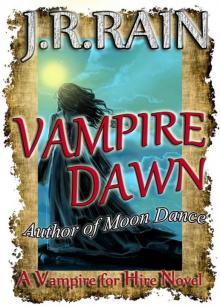 Vampire Moon
Vampire Moon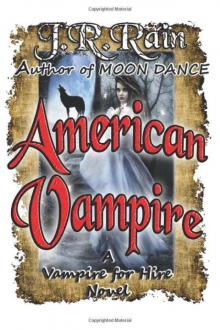 American Vampire
American Vampire Moon Child
Moon Child Moon Island
Moon Island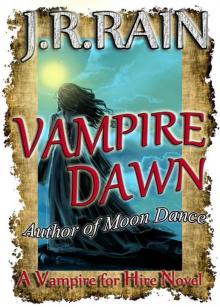 Vampire Dawn
Vampire Dawn Christmas Moon
Christmas Moon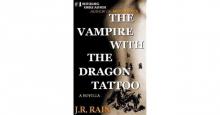 The Vampire With the Dragon Tattoo
The Vampire With the Dragon Tattoo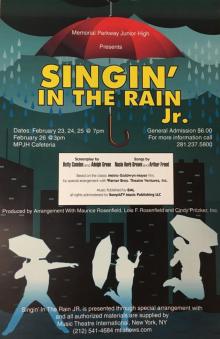 Arthur
Arthur Broken Ice (Immortal Operative Book 1)
Broken Ice (Immortal Operative Book 1) Vampire Games
Vampire Games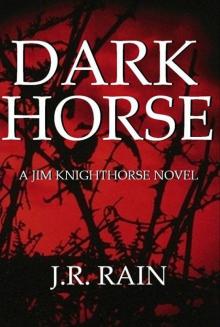 Dark Horse
Dark Horse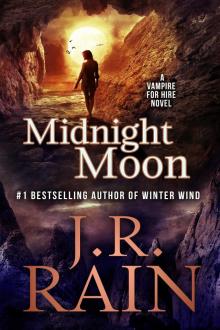 The Vampire Who Played Dead
The Vampire Who Played Dead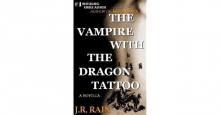 The Mummy Case
The Mummy Case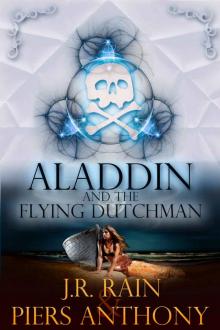 Aladdin and the Flying Dutchman (The Aladdin Trilogy Book 3)
Aladdin and the Flying Dutchman (The Aladdin Trilogy Book 3) Aladdin Relighted (The Aladdin Trilogy Book 1)
Aladdin Relighted (The Aladdin Trilogy Book 1)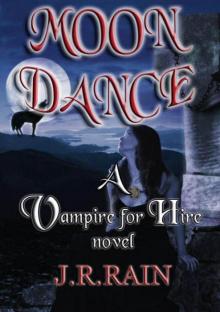 Moon Dance (Vampire for Hire #1)
Moon Dance (Vampire for Hire #1) The Santa Call and Other Stories
The Santa Call and Other Stories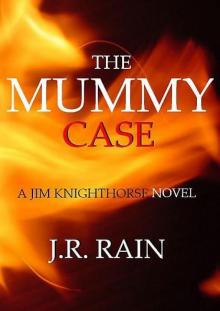 The Mummy Case jk-2
The Mummy Case jk-2 Vampire Gold
Vampire Gold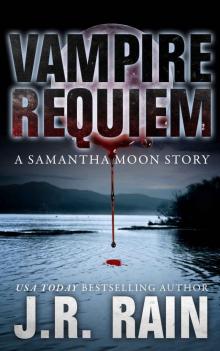 vampire requiem
vampire requiem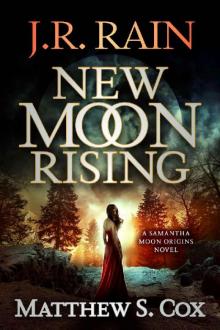 New Moon Rising (Samantha Moon Origins Book 1)
New Moon Rising (Samantha Moon Origins Book 1) The Journey
The Journey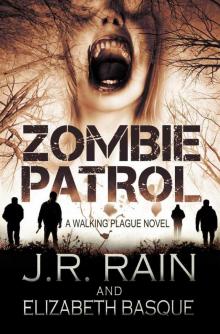 Zombie Patrol (Walking Plague Trilogy #1)
Zombie Patrol (Walking Plague Trilogy #1)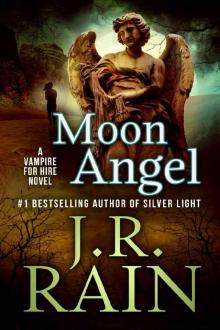 Moon Angel (Vampire for Hire Book 14)
Moon Angel (Vampire for Hire Book 14) Vampire for Hire: First Eight Short Stories (Plus Samantha Moon's Blog and Bonus Scenes)
Vampire for Hire: First Eight Short Stories (Plus Samantha Moon's Blog and Bonus Scenes)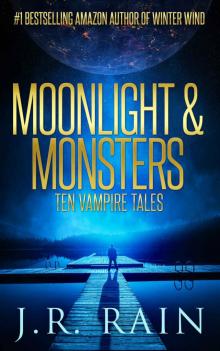 Moonlight & Monsters: Ten Vampire Tales
Moonlight & Monsters: Ten Vampire Tales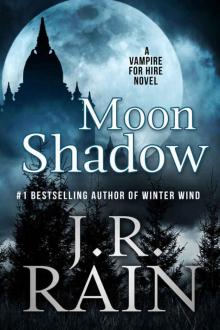 Moon Shadow (Vampire for Hire Book 11)
Moon Shadow (Vampire for Hire Book 11)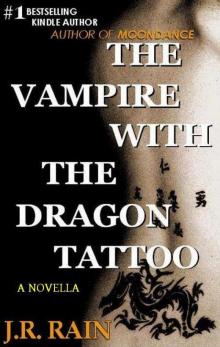 The Vampire With the Dragon Tattoo (Spinoza Series #1)
The Vampire With the Dragon Tattoo (Spinoza Series #1) vampire nights
vampire nights Moon Shadow
Moon Shadow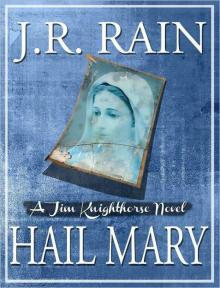 Hail Mary
Hail Mary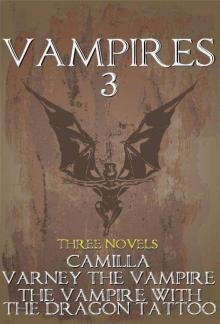 Vampires 3
Vampires 3 Moon Island (A Vampire for Hire Novel)
Moon Island (A Vampire for Hire Novel)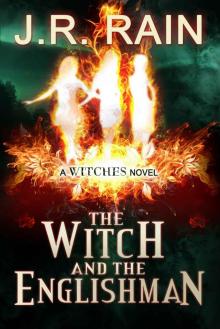 The Witch and the Englishman (The Witches Series Book 2)
The Witch and the Englishman (The Witches Series Book 2)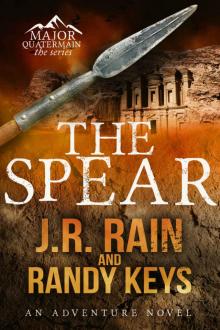 The Spear (Major Quatermain Book 1)
The Spear (Major Quatermain Book 1)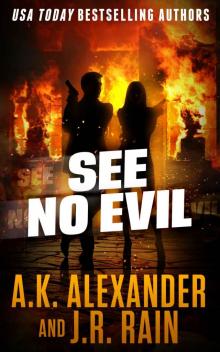 See No Evil (The PSI Trilogy Book 2)
See No Evil (The PSI Trilogy Book 2)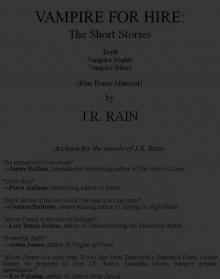 Vampire for Hire: All Three Short Stories
Vampire for Hire: All Three Short Stories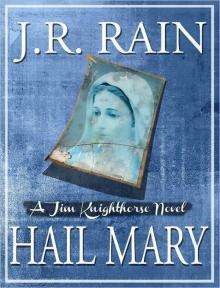 Hail Mary jk-3
Hail Mary jk-3 Silver Light
Silver Light Moon Bayou
Moon Bayou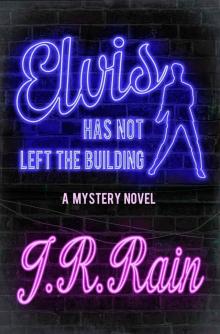 Elvis Has Not Left the Building
Elvis Has Not Left the Building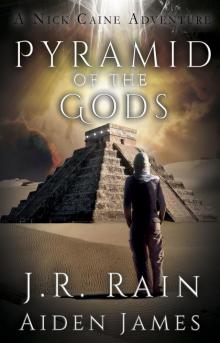 Pyramid of the Gods
Pyramid of the Gods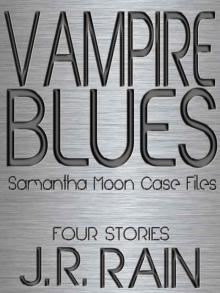 vampire blues
vampire blues Vampire Dreams
Vampire Dreams Samantha Moon: First Eight Novels, Plus One Novella
Samantha Moon: First Eight Novels, Plus One Novella Moon Investigations: Books Three and Four
Moon Investigations: Books Three and Four blue moon
blue moon The Drifting Gloom (Maddy Wimsey Book 2)
The Drifting Gloom (Maddy Wimsey Book 2) Christmas Moon (A Vampire for Hire Novella)
Christmas Moon (A Vampire for Hire Novella)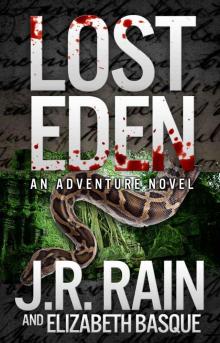 Lost Eden
Lost Eden Dolfin Tayle
Dolfin Tayle vampire for hire 02.5 - vampire nights
vampire for hire 02.5 - vampire nights Blood Moon (Samantha Moon Case Files Book 2)
Blood Moon (Samantha Moon Case Files Book 2) Easy Rider: A Jim Knighthorse Story (Short Story)
Easy Rider: A Jim Knighthorse Story (Short Story)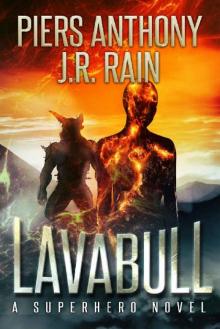 Lavabull
Lavabull The Lost Ark
The Lost Ark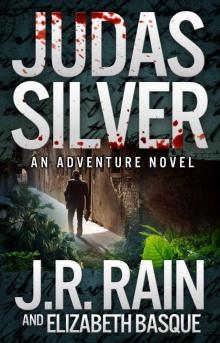 Judas Silver
Judas Silver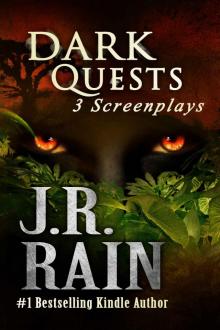 Dark Quests (Three Screenplays)
Dark Quests (Three Screenplays)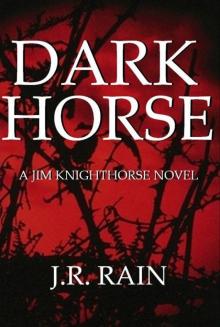 Dark Horse (A Jim Knighthorse Novel)
Dark Horse (A Jim Knighthorse Novel) Sherlock Holmes and the Missing Shakespeare
Sherlock Holmes and the Missing Shakespeare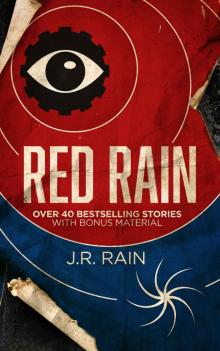 Red Rain: Over 40 Bestselling Stories
Red Rain: Over 40 Bestselling Stories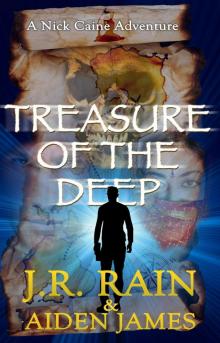 Treasure of the Deep
Treasure of the Deep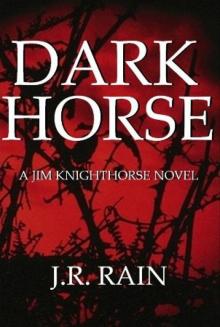 Dark horse jk-1
Dark horse jk-1 Ghosts of Christmas Present: A Dead Detective Short Story (The Dead Detective)
Ghosts of Christmas Present: A Dead Detective Short Story (The Dead Detective) Zombie Mountain
Zombie Mountain Spider Bite: A Vampire Thriller (The Spider Trilogy Book 3)
Spider Bite: A Vampire Thriller (The Spider Trilogy Book 3) Aladdin Sins Bad (The Aladdin Trilogy Book 2)
Aladdin Sins Bad (The Aladdin Trilogy Book 2) Vampire Fire
Vampire Fire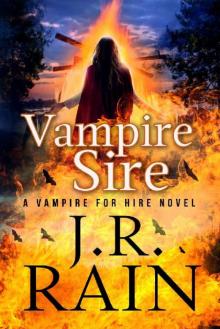 Vampire Sire (Vampire for Hire Book 15)
Vampire Sire (Vampire for Hire Book 15)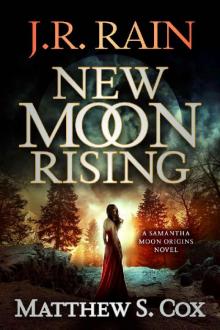 New Moon Rising
New Moon Rising The Walking Plague Trilogy
The Walking Plague Trilogy Moon Extras: Samantha Moon Bonus Scenes
Moon Extras: Samantha Moon Bonus Scenes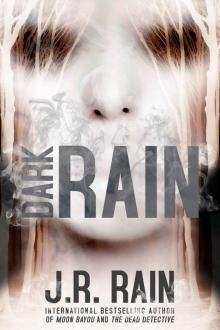 Dark Rain: 15 Short Tales
Dark Rain: 15 Short Tales Hear No Evil (The PSI Trilogy Book 1)
Hear No Evil (The PSI Trilogy Book 1)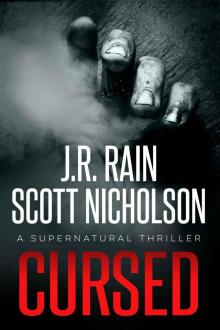 Cursed
Cursed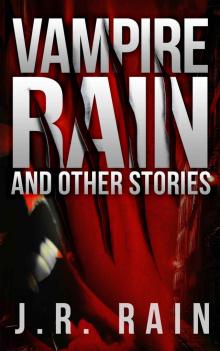 Vampire Rain and Other Stories (Includes Samantha Moon's Blog)
Vampire Rain and Other Stories (Includes Samantha Moon's Blog) Jim Knighthorse Series: First Three Books
Jim Knighthorse Series: First Three Books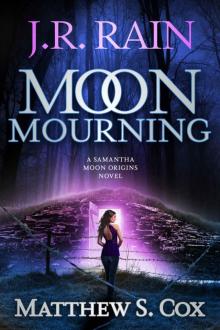 Moon Mourning (Samantha Moon Origins Book 2)
Moon Mourning (Samantha Moon Origins Book 2) The Devil's Eye
The Devil's Eye The Vampire Who Played Dead (Spinoza Series #2)
The Vampire Who Played Dead (Spinoza Series #2)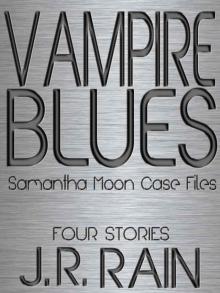 Vampire Blues: Four Stories (Samantha Moon Case Files #1)
Vampire Blues: Four Stories (Samantha Moon Case Files #1) Silver Light (Alexis Silver Book 1)
Silver Light (Alexis Silver Book 1)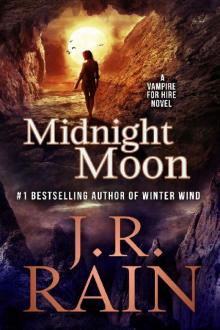 Midnight Moon
Midnight Moon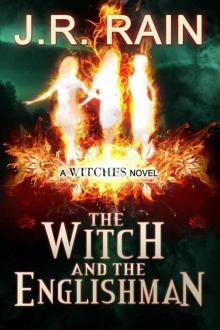 The Witch and the Englishman
The Witch and the Englishman Vampire for Hire
Vampire for Hire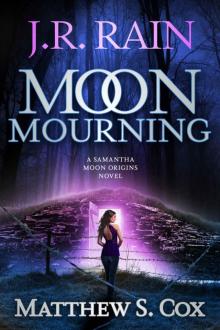 Moon Mourning
Moon Mourning Moon Bayou (Samantha Moon Case Files Book 1)
Moon Bayou (Samantha Moon Case Files Book 1)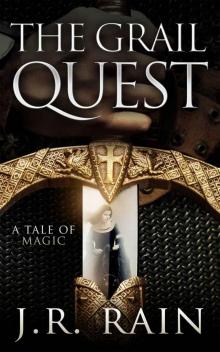 The Grail Quest (The Avalon Book 1)
The Grail Quest (The Avalon Book 1) The Body Departed (2009)
The Body Departed (2009) The Witch and the Gentleman
The Witch and the Gentleman Spider Web: A Vampire Thriller (The Spider Trilogy Book 2)
Spider Web: A Vampire Thriller (The Spider Trilogy Book 2)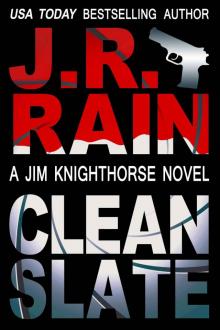 Clean Slate (Jim Knighthorse Book 4)
Clean Slate (Jim Knighthorse Book 4)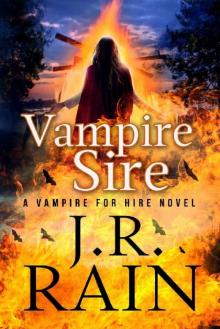 Vampire Sire
Vampire Sire Vampire Sun
Vampire Sun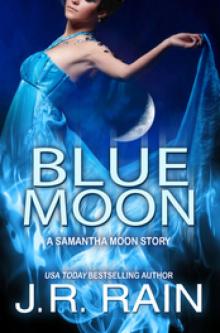 Blue Moon: A Samantha Moon Story
Blue Moon: A Samantha Moon Story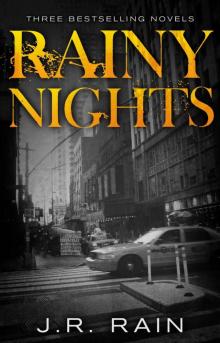 Rainy Nights: Three Mysteries
Rainy Nights: Three Mysteries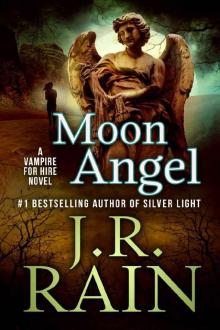 Moon Angel
Moon Angel Convergence (Winter Solstice Book 1)
Convergence (Winter Solstice Book 1) Vampires & Werewolves: Four Novels
Vampires & Werewolves: Four Novels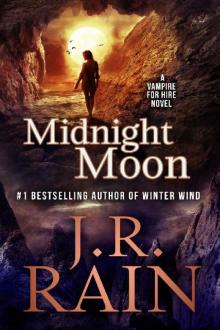 Midnight Moon (Vampire for Hire Book 13)
Midnight Moon (Vampire for Hire Book 13) Vampire Gold: A Samantha Moon Story (Vampire for Hire)
Vampire Gold: A Samantha Moon Story (Vampire for Hire) Moon Extras
Moon Extras The Witch and the Gentleman (The Witches Series Book 1)
The Witch and the Gentleman (The Witches Series Book 1)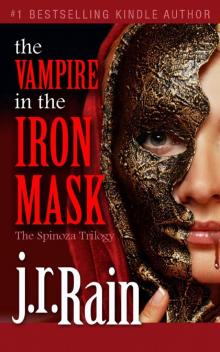 The Vampire in the Iron Mask (The Spinoza Trilogy Book 3)
The Vampire in the Iron Mask (The Spinoza Trilogy Book 3) The Mummy Case (Jim Knighthorse Series #2)
The Mummy Case (Jim Knighthorse Series #2)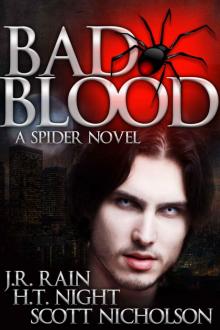 Bad Blood: A Vampire Thriller (The Spider Trilogy Book 1)
Bad Blood: A Vampire Thriller (The Spider Trilogy Book 1)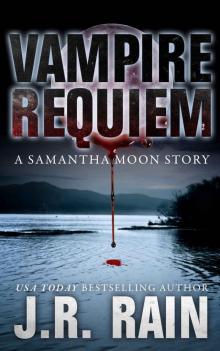 vampire for hire 10.5 - vampire requiem
vampire for hire 10.5 - vampire requiem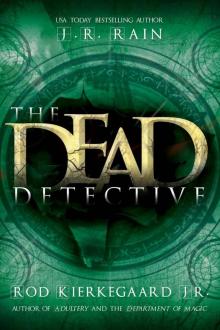 The Dead Detective
The Dead Detective